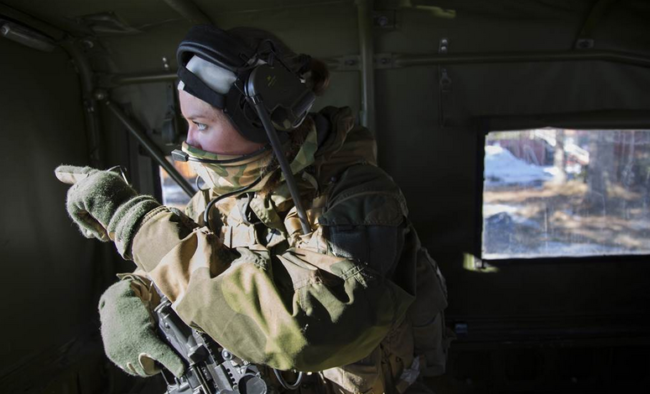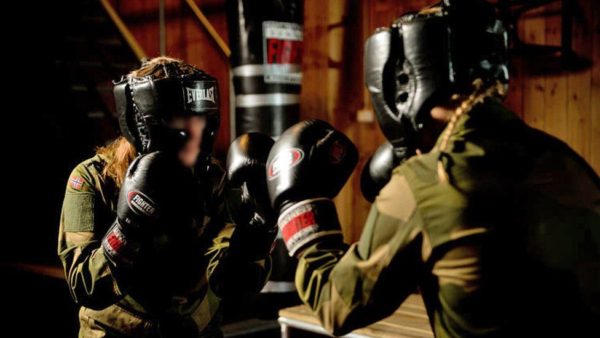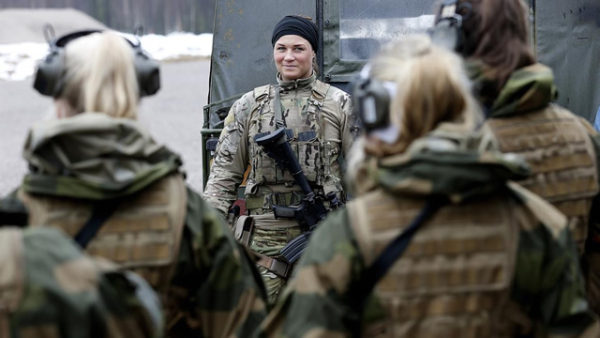 Women in military is certainly not a new concept, but women in special elite units and combat roles definitely it. In 2016, the US military finally allowed women to apply for combat positions in all branches, where they were previously barred from. And with women only making up 14% of military personnel but less than 10% of leadership roles in each branch at the general-officer rank, it’s clear diversity is still a long way off.
Women in military is certainly not a new concept, but women in special elite units and combat roles definitely it. In 2016, the US military finally allowed women to apply for combat positions in all branches, where they were previously barred from. And with women only making up 14% of military personnel but less than 10% of leadership roles in each branch at the general-officer rank, it’s clear diversity is still a long way off.
But we are seeing progress, with the first female army rangers and infantry marines now holding these prominent titles. Elsewhere in the world there are an increasing number of women rising in the military ranks, although this is not necessarily a new phenomenon, we should point out. All throughout history there are records of women who have been fighting for their country, their rights and their land, as opposed to only letting the men take to the battle field.
Contemporary examples such as the Mexican women fighting on the frontlines of the Zapatista liberation movement, to the Kurdish women in the Peshmerga fighting ISIS, it is clear women are not afraid to fight when necessary. In Norway, an elite all-female fighting unit also proves this, as well as the necessity of women in conflict zones.
The “Jegertroppen”, as it is known (translated to “hunter troop), was set up in 2014 and is the world’s first all-female special forces unit. While the US still hopes to attract more women to apply for elite combat roles, Norway is ahead of the pack, allowing women to apply for combat roles since the 1980s, according to a profile on the Jegertroppen on NBC News. Norway also became the first NATO country to introduce female conscription, in 2016.

The formation of this unit came about less as a gender diversity initiative, and more of a necessity. In countries like Afghanistan where the Norwegian Armed Forces have been stationed alongside other countries, they found the conservative culture forbidding men from interacting and communication with women in certain areas posed a challenge, and they realized there was a need for more women in their ranks.
“The exclusion of half the population was having a detrimental impact on intelligence gathering and building community relations,” writes NBC News’ Carlo Angerer.
The Jegertroppen was specifically created to solve this problem, where women were trained to all the same jobs as their male counterparts, and complete tasks the men cannot.
“When [Norway] deployed to Afghanistan we saw that we needed female soldiers. Both as female advisers for the Afghan special police unit that we mentored, but also when we did an arrest. We needed female soldiers to take care of the women and children in the buildings that we searched,” said Col. Frode Kristofferson, the commander of Norway’s special forces.
Unlike in the US where certain combat positions are yet to see any female applicants, the Jegertropped saw 300 women apply in the first year, and over the past couple of years they have proven to be able to hold their own physically in the male-dominated world of the military. They undergo grueling training exercises so as to determine their fitness level beyond a doubt.

The training takes place at Terningmoen Camp, about 100 miles north of Oslo, and includes parachuting out of military aircraft, skiing in the Arctic tundra, navigating the wilderness and fighting in urban terrain. They also have to carry heavy gear, weighing over 100 pounds, while undergoing these tasks. Applicants have to run about four miles carrying 60 pounds of military gear in under 52 minutes.
The women’s sense of camaraderie has also had a positive influence on the men in the unit, according to Capt. Ole Vidar Krogsaeter, the officer leading the training program.
“The boys see that the girls help each other, so the boys are doing better on that as well,” he said.
“To prepare them we try to give them the best training possible, as realistic as possible. We have them go through the exercises so many times that they are comfortable with it.”
Captain Krogsaeter admits he was skeptical at first about the ability of women to hold the same level of skill as the men, but over time he has changed his perspective. The leaders who have worked with these women claim the excuses cited by those who push back against more women in combat positions, such as the effects of PMS (eyeroll…) complaints of wives, and the issue of segregated living quarters, are not based on reality.

One of the Jegertroppen trainers, Magnus, who is also a Norwegian special forces soldier, said these aren’t an issue, but others may be, such as the ability of women to quickly carry a male wounded soldier to safety. But he also shares a very evolved perspective on how adding more women can add their own vital and unique capacities that benefit these elite forces.
“I don’t think you should view it as the girls are gonna do the exact same as the guys. They are not going to win hand-to-hand combat, but most of the time we use guns and a lot of the time they shoot better than the guys,” he said, an observation also shared by Captain Ole Vidar Krogsaeter.
One of the female members, 22 year-old Venderla, says physical capabilities are not the only test of military greatness.
“Women think outside the box. Men just do what they are supposed to do. Maybe we are more capable of seeing another solution, a better solution,” she said.
She told the BBC that despite the progressive view of the leaders, she has experienced some sexism from men who either don’t think she is physically able to do to job, as well as some unwarranted sexual comments. Once she complained, the problems stopped.
“I think he was maybe a little insecure. I knew I was good enough passing the tests so it’s his problem,” she recalled.

Sexual assault in the military has been a big issue here in the US, with documentaries like ‘The Invisible War’ really bringing the issue to a mass audience. It forced the military to address this problem head on, and has since become a focus on a national policy level most notably by US Senator Kirsten Gillibrand (D-NY).
During the 2016 presidential campaign, then-candidate Donald Trump doubled down on reckless comments he had tweeted claiming sexual assault toward women was always going to be a “given” when men interacted with women, insinuating they are neanderthals who can’t control themselves and it is women’s fault for choosing to do this job. It is that kind of absurd, outdated, and incredibly damaging misogynistic statement that could prevent more women from joining the military, and prevent those at a leadership level from solving the epidemic.
This issue of sexism and assault became all the more apparent with the news of male Marines leaking nude photos of female marines online, which is an ongoing investigation that has so far seen the 21 felony cases and more than 30 others referred to Marine commanders for possible administrative action.
The exposure of inherent and epidemic sexism in military ranks, along with more and more women joining the force can only be a good thing in the long run. We need to see more women breaking down barriers and misconceptions in male-dominated arenas. The Jegertroppen is just one example of how this can happen.
(girltalkhq)
